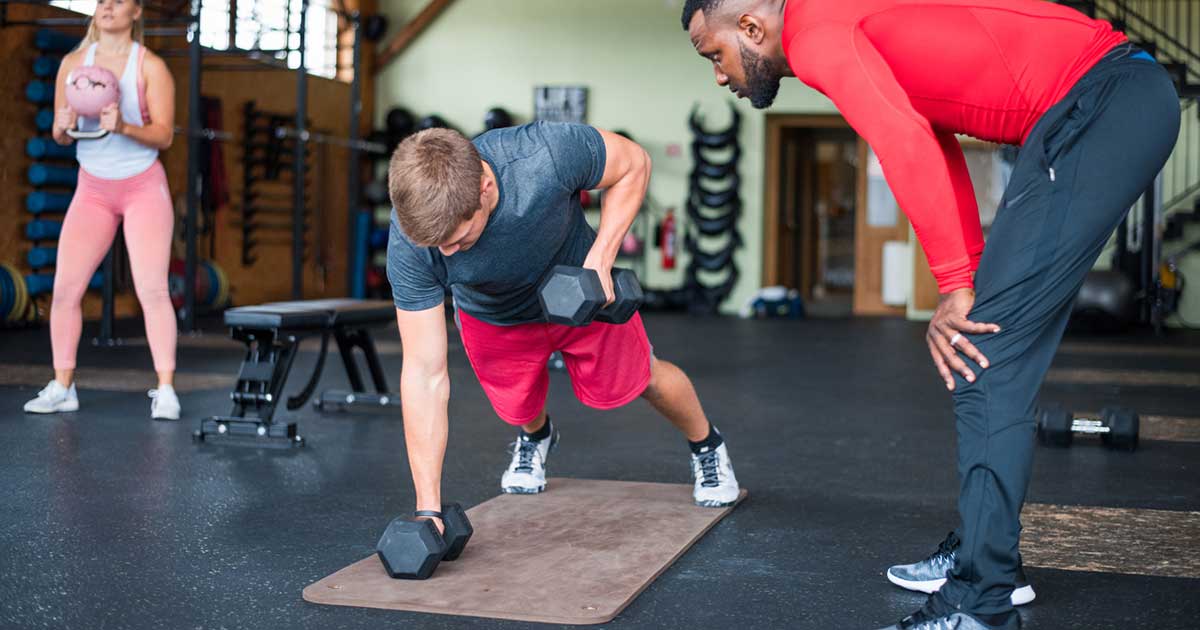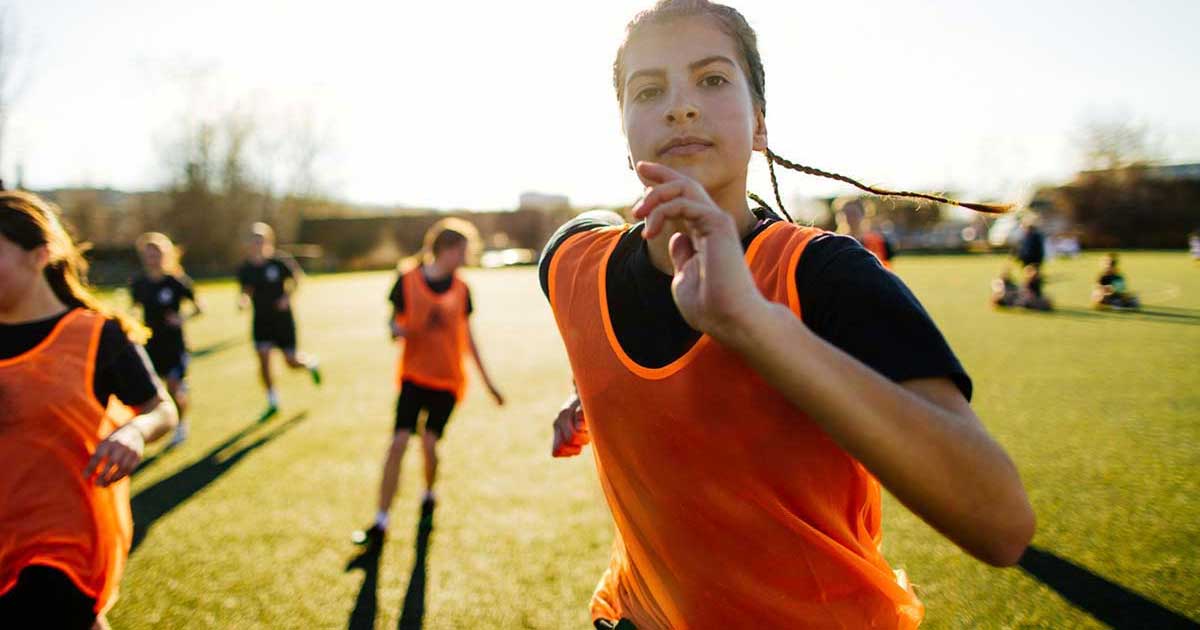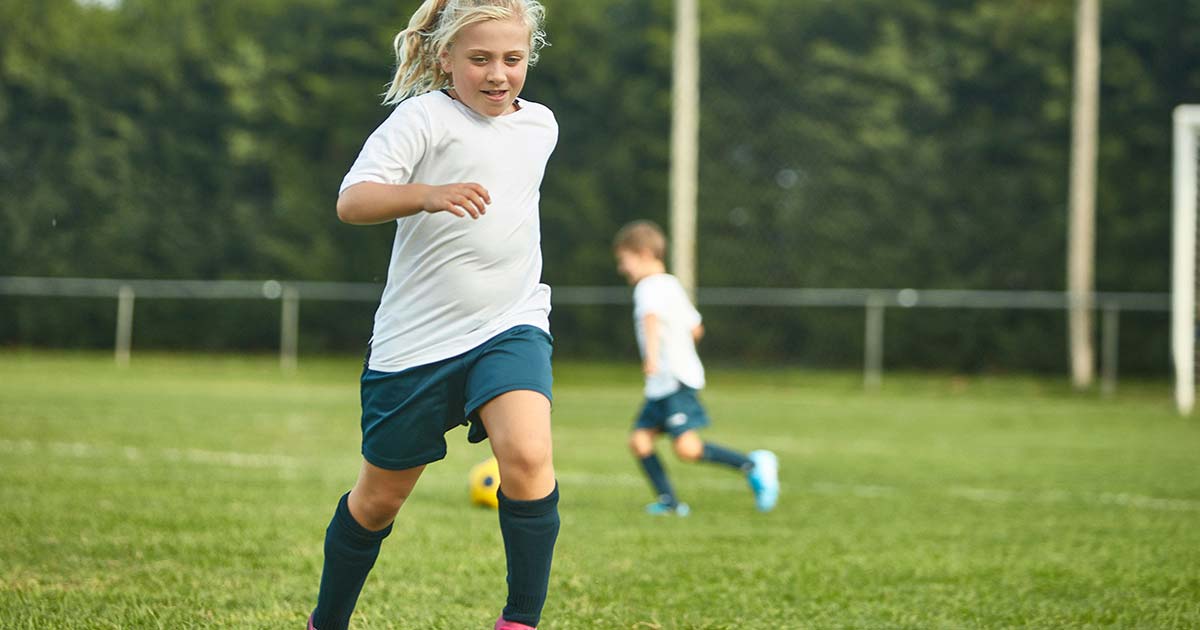Strength Training for Teens: What to Know
Advice to improve your movement, fitness, and overall health from the world's #1 in orthopedics.
“Done safely and with the proper technique, strength training is good for teenagers and even for pre-adolescents,” says Joseph Molony, a physical therapist and coordinator of the Young Athlete Center at HSS. “There’s a belief that young people should not engage in strength training, but that’s a myth.” Supervision by a trained professional is key, however.

Before Beginning a Strength-Training Program
It’s a good idea for teens and their parents to consider what they hope to gain from strength training before beginning, according to HSS pediatric orthopedic surgeon Daniel Green, MD, MS, FAAP, FACS. Dr. Green also recommends a doctor’s visit before starting the program if a teenager has experienced pain or a previous injury so that the appropriate treatment plan and training strategy can be developed.
The next step is to find a structured, well-supervised program or a certified instructor to get started. A fitness evaluation, development of a safe program geared to individual needs and goals, and learning proper technique are essential, says Molony.
Teens may be able to find a program in their community, or they may opt for one-on-one instruction. The HSS Young Athlete Center offers training and conditioning for small groups, as well as individual sessions.
“A general strengthening program should offer age-appropriate exercises; teach proper movement patterns; address major muscle groups, including the core; and have the teen progress in a slow and steady manner,” says Ashley Fluger, CSCS, an exercise physiologist at the center. “A well-rounded fitness program also incorporates cardiovascular exercises that are good for the heart, such as biking or running, as well as exercises to increase flexibility, such as foam rolling.”
Tips for Teens
To find a fitness professional, do your homework and check credentials. An expert should have formal training and some type of certification. For example, Molony and Fluger are certified strength and conditioning specialists.
Here are a few additional strength-training recommendations for teens:
- Start with a stretch. Dynamic stretching is a great way to begin a strength-training workout. This entails movements that help increase heart rate and warm up muscles and incorporates flexibility. It should be done for at least 5 to 10 minutes before lifting weights. Exercises such as jumping jacks, lunges and raising the knee to the chest are examples. An elliptical machine is also a good piece of equipment for warming up the arms and legs.
- Try foam rolling. Using a foam roller before exercising is another good way to warm up. Utilizing the device increases blood flow to your muscles and improves flexibility.
- Ease into it. Your teen should start slowly with lighter weights, gradually progressing to heavier loads. It’s important to maintain good form and control during all repetitions to avoid injury and make the most of a routine.
- Keep weight reasonable. Teens should be able to complete three sets of 10 to 15 repetitions at each weight. This ensures they are using a weight they can handle. If they can only do three or five reps, that means the weight is too heavy, putting them at risk for injury.
- Plan ahead. Strength training should be limited to 2 to 3 times per week on nonconsecutive days to avoid overloading and overstressing the body.
- Don't overdo it. Never attempt the so-called “one rep max,” or the maximum amount of weight that can be lifted in a single bench press or barbell lift. This puts kids and adults at risk for muscle strains, tendon tears, back injuries and even hernias.
- Document progress. Have your teen keep a log to track progress. This can also help with staying motivated.
- Stay hydrated. Have water or an energy drink on hand.
- Listen to the body. It’s important for anyone who exercises to stop working out immediately if any pain arises or if they feel something pop. Tell your teen to report any possible injury to a parent, coach or trusted adult. It’s important to know the difference between muscle soreness, which is acceptable, versus joint pain or a severe muscle ache, which could indicate an injury. Any sign of illness or injury should be evaluated fully before returning to exercise.
Finally, teens should stay away from supplements that say they enhance performance. A better overall strategy includes a nutritious diet containing lots of protein, fruits and vegetables; sufficient hydration; dedication to the exercise program; maintaining good form while exercising; adequate rest and slow and steady progress.
Published 7/24/2023






